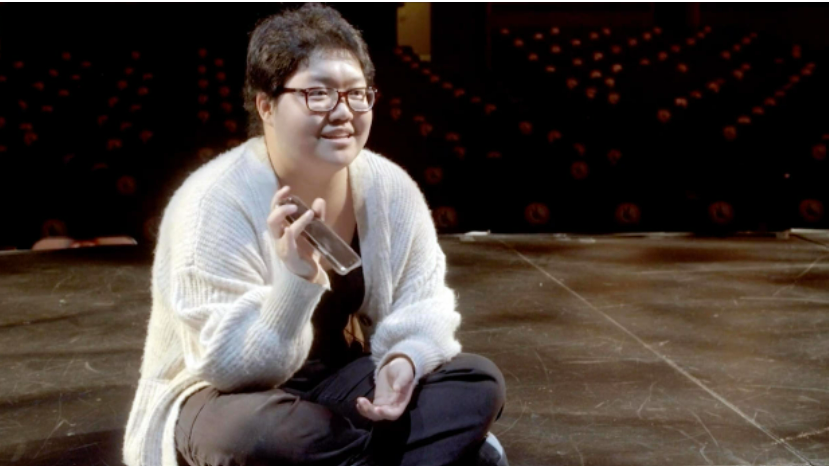Gen Z wants to escape the “needle circle” of social networks
Many young people of Gen Z are currently worried about the negative effects of digital devices and social networks on their real lives.
Generation Z boys and girls (the term used to refer to people born between 1997 and 2012) are the first generation to have a close relationship with smart devices right from the start. from being in the womb to growing up and becoming an adult.
 |
| Gen Z was born and raised with smart devices and social networks – Photo: Getty Images |
And they are also the first generation to speak out about being too dependent on modern technology.
“I used to think that I had the whole world in the palm of my hand with just a few mouse clicks or swipes on the phone screen. I can connect with friends via social media, comment and get feedback from everyone easily. I find it interesting, and I consider it a part of my life”, said Emma Lembke, a freshman at the University of Washington (USA), about her first experience using social networking platforms when she was just a kid. turn 16 years old.
“But gradually, I realized that I seem to be losing control when participating in activities on social networks. More and more I feel like I have negative emotions such as anxiety, fear, stress, even insomnia,” Lembke said.
Spending too much time on social media and other online activities, and having to “stick” to smart electronic devices for long-term distance learning due to the impact of the pandemic COVID-19 made Lembke decide to “do something to free himself and his peers”.
 |
| Emma Lembke, co-founder of the LOG OFF movement, has the goal of promoting safe and healthy relationships for young people when participating in social networks – Photo: Sid Hastings/Washington University |
In May 2020, Lembke and like-minded friends founded the LOG OFF movement (roughly translated into Vietnamese: Turn off computers and phones).
“The LOG OFF movement was initiated as a youth movement for the youth generation to create a space for dialogue and conversation about the multifaceted nature of social media and promote social media. promote its use in healthier ways,” explains Lembke.
Initially, Lembke only limited his activities through a blog focused on discussing the negative effects of social networks on himself and those around him. But not long after, she realized that thousands of other teenagers had similar concerns, especially mental and emotional health problems when being controlled by social networks.
18-year-old Los Angeles schoolgirl Emi Kim is also among young people struggling to find the right balance between the addictive algorithms of social networking apps and their own need to stay connected. with my friends during the COVID-19 lockdown.
“I deleted everything I posted on social media. I also completely removed social networking applications on my phone and computer,” Kim said.
“I know that many young people are still immersed in the virtual aura created by social networks but forget that they still have a life outside of real life, at school and extracurricular activities, not just trending videos on TikTok or YouTube.”
 |
| “The first sentence right after we finished class at school was: Where’s my phone?”, female student Emi Kim said – Photo: CBS News |
According to data from a study recently published in the specialized journal JAMA Pediatrics of the American Medical Association (AMA), before the COVID-19 pandemic, children between the ages of 10 and 14 used average 3.8 hours/day to participate in online activities (excluding study time). But this number has increased to 7.7 hours/day during the pandemic.
Lembke believes that the inability of teenagers to pull away from the screens of electronic devices is a deliberate strategy of technology companies, not young people who lack the will to put their phones down.
“Some friends told me that you can’t get out of a closed circle: just finished watching a video, a series of other videos continue to appear immediately, prompting you to continue watching without being able to watch. can stop. Algorithms built by social networks have the ability to make content constantly suggested, and subconsciously urge users to keep swiping the screen to continue watching,” Lembke said, adding that , many videos contain harmful content, not suitable for teenagers.
The dark side of social networking platforms has also been confirmed by US regulators when a recent report by the US Congress said, Facebook is a social networking platform that spreads a lot of fake news and hateful content, which has a negative impact on the perception and behavior of young Americans.
In addition, the Wall Street Journal also published a document showing that one-third of American schoolgirls surveyed admitted that the content on Instagram makes them feel more disgusted with themselves when compared to their peers. perfect role models are built on social networks.
This contrasts with the statement of Meta, the parent company of Facebook and Instagram, that: “Instagram platform helps many young people to overcome the serious problems they are facing themselves”.
 |
| Social networks bring many negative impacts on the physical and mental health of teenagers – Photo: NYBH |
According to a study by Pew Research – an organization that researches attitudes, trends, and issues happening in the US and around the world, up to 45% of young people surveyed said that they feel “overwhelmed.” by social networks”, although the number of hours spent surfing the net of this group is still increasing every year.
According to www.phunuonline.com.vn
at Blogtuan.info – Source: infonet.vietnamnet.vn – Read the original article here


